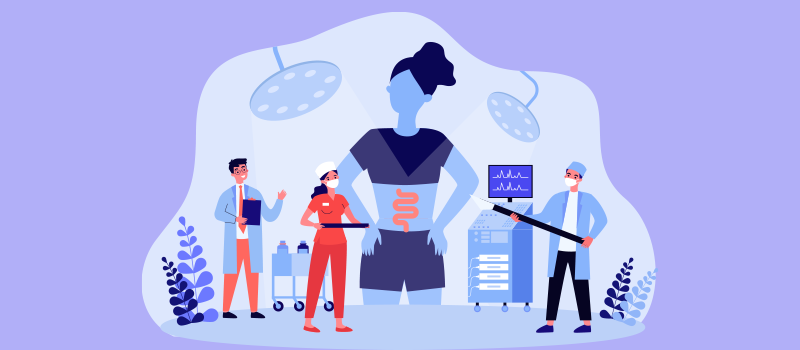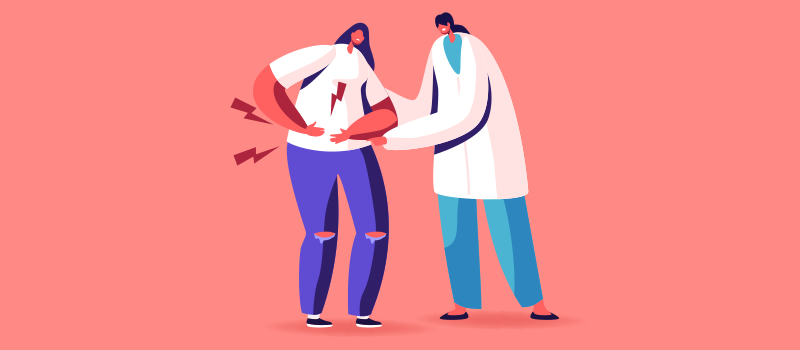What’s the Buzz
The Bee Healthy Blog
What is the Best Anti-Diarrhea Medicine?

Diarrhea is a very common condition. Most people get it multiple times in their life for different reasons. It typically consists of loose or watery stools and more frequent bowel movements than usual (more than three times a day). Diarrhea can be accompanied by other symptoms like nausea, vomiting, stomach pain, discomfort, indigestion, bloating, fever, blood or mucus in the stool, and urgency to pass stool.
Please continue reading to learn about some prescription anti-diarrheal medicines and over-the-counter medicines that can ease diarrhea. But if you are feeling ill, having fevers, or experiencing large volumes of diarrhea for more than 48-72 hours, you should first alert your doctor.
What causes acute diarrhea?
Common causes of diarrhea include infection caused by bacteria, viruses, yeast, and parasites. Diarrhea is also a common symptom in digestive disorders like food intolerances, food allergies, irritable bowel syndrome (IBS-D), ulcerative colitis and Crohn’s disease (inflammatory bowel disease), and small intestinal bacterial overgrowth (SIBO). Surgery on the intestine or gallbladder can lead to diarrhea.
Additionally, many medications, including antibiotics, can cause diarrhea as a side effect. People with gastrointestinal conditions like lactose intolerance develop diarrhea after consuming milk and other dairy products. Similarly, patients with fructose intolerance can develop diarrhea after eating fructose, a natural sugar found in fruits. Artificial sweeteners like mannitol, erythritol, and sorbitol can cause diarrhea in some people as well.
What stops diarrhea the fastest?
Most cases of diarrhea clear on their own without treatment. However, your healthcare provider may prescribe medications if your symptoms do not improve after two days.
What medications are used to treat diarrhea symptoms?
Over-the-counter medications
You can take anti-diarrheal medicines for OTC relief of diarrhea symptoms—for example, loperamide (Imodium) and bismuth subsalicylate (Pepto Bismol, Kaopectate). These drugs help to reduce the number of loose stools.
However, remember that OTC medications can prolong diarrhea caused by bacterial and parasitic infections by preventing your body from getting rid of the germs. Also, medications like loperamide can cause side effects like dizziness, tiredness, and constipation. In addition, be sure to check with your doctor before giving any OTC medication meant for adults to children.
Prescription medications
Prescription drugs used to treat diarrhea are available. The choice of medication depends on the cause. It may include:
- Antibiotics such as azithromycin, fluoroquinolones (levofloxacin, ciprofloxacin), and rifaximin may be used for bacterial infections such as traveler’s diarrhea if the infection is severe enough. However, antibiotics will not stop diarrhea caused by viruses.
- Antiprotozoal medications like nitazoxanide (Alinia) can help treat diarrhea where parasites like Cryptosporidium and Giardia are the cause.
- Medications such as eluxadoline (Viberzi) and alosetron (Lotronex) are helpful for irritable bowel syndrome (IBS-D).
- Medications such as mesalamine (Rowasa, Delzicol), olsalazine (Dipentum), and balsalazide (Colazal) help reduce inflammation in inflammatory bowel disease (IBD).
What is the best medicine to stop diarrhea?
The best medicine to stop diarrhea depends on the cause. As mentioned, most cases of diarrhea resolve on their own without treatment. Over-the-counter medicines like bismuth subsalicylate and loperamide can help to control symptoms in mild to moderate cases of diarrhea. If the diarrhea is severe and seemingly from an infection, your doctor may prescribe a medication such as an antibiotic, depending on the cause.
What options exist other than Imodium for diarrhea?
Pepto-Bismol (bismuth subsalicylate) is another option other than Imodium A-D (loperamide). If you are experiencing other symptoms such as nausea, heartburn, and indigestion in addition to diarrhea, Petop-Bismol may be the medication for you.
Can home remedies help relieve diarrhea?
Most of the time, diarrhea goes away within a day or two, even without treatment. The following can help you cope with the symptoms in the meantime:
- Stay well hydrated with water and other fluids like sports drinks, but avoid caffeine and alcohol, which can be dehydrating. Keep in mind that certain fruit juices, like apple juice, can worsen dehydration.
- Eat a bland diet and semi-solid or low-fiber foods like crackers, rice, and chicken. Doctors recommend a BRAT diet (bananas, rice, applesauce, and toast).
- Avoid dairy products and fatty, acidic, spicy, or high-fiber foods until your symptoms resolve.
When to see a doctor for diarrhea?
In many cases, diarrhea is a short illness that lasts for a few days. This is usually the case when the symptoms are due to an infection like traveler’s diarrhea. However, sometimes diarrhea can continue for weeks or even months. This may be an indication of an underlying problem such as irritable bowel syndrome (IBS) or other serious disorders like persistent infections or inflammatory bowel disease (IBD). You should consult a doctor if:
- Diarrhea persists for more than 2 days without improvement.
- You have signs of dehydration such as dry mouth, dizziness, lightheadedness, tiredness, reduced urination, and dark yellow urine.
- You have bloody or black/tarry stools.
- You have severe abdominal pain or rectal pain.
- You have a fever above 102 F (39 C).
References:
- https://www.mayoclinic.org/diseases-conditions/diarrhea/symptoms-causes/syc-20352241
- https://wwwnc.cdc.gov/travel/yellowbook/2020/preparing-international-travelers/travelers-diarrhea
- https://medlineplus.gov/druginfo/meds/a603017.html#
- https://www.viberzi.com/
- https://www.mayoclinic.org/diseases-conditions/inflammatory-bowel-disease/diagnosis-treatment/drc-20353320












SOCIAL